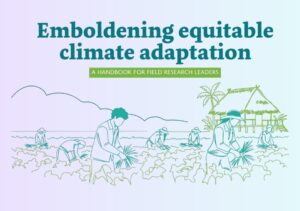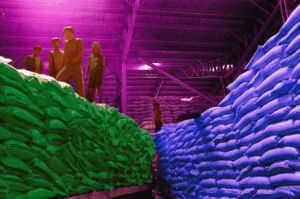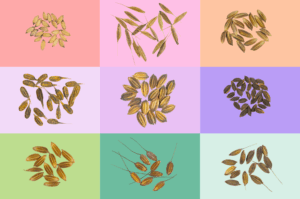Myanmar plans to export up to 4 million tons of rice annually by 2025 to meet demands from China, Europe, and other Southeast Asian countries. The country expects to earn an estimated USD 1.5 billion from future rice exports.
Myanmar will focus on higher-quality varieties, according to the president of the nation’s rice federation.
However, the country’s agri-food sector faces significant challenges such as the rising cost of fertilizer and increasingly unavailable or expensive high-quality seeds.
Read the story @Bloomberg
More on rice production in Myanmar:
IRRI, WorldFish, and Myanmar work together to optimize rice-fish farming productivity
IRRI, together with WorldFish and the Ministry of Agriculture, Livestock, and Irrigation of Myanmar is exploring opportunities to improve the livelihood, income, and nutrition of smallholder farmers in Myanmar by maximizing the combined productivity of rice and fish farming.
Research results conducted in Myanmar and some neighboring countries through the ACIAR-funded Rice-Fish project show that improved rice-fish farming offers a chance for farmers to produce a greater range of food and earn more income while only having minimum paddy modifications.
Rural women in Myanmar reap the benefits of sustainable rice farming practices
A study on the impact of sustainable rice farming on rural women in Myanmar revealed that smallholder families who adopted best management practices experienced remarkable social and cultural changes in their livelihoods through higher yield and income.
Myanmar strengthens partnerships with the private sector in scaling-out laser land leveling
“Laser land leveling is not a new technology in Myanmar having been first used in 1996,” said U Ko Ko Maung, deputy director general of the Agricultural Mechanization Department (AMD). “However, most farmers still rely on manual leveling methods. Adopting the laser land leveling technology can help reduce the high rice production costs and labor intensity associated with manual leveling.”
The Agricultural Development Support Project aims to increase the capacity of AMD and the private sector in promoting the wide-scale adoption of laser leveling among farmers.










